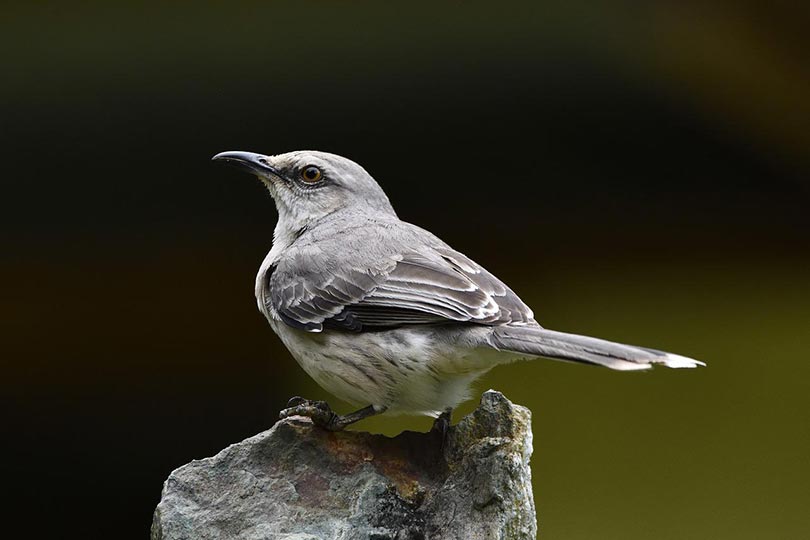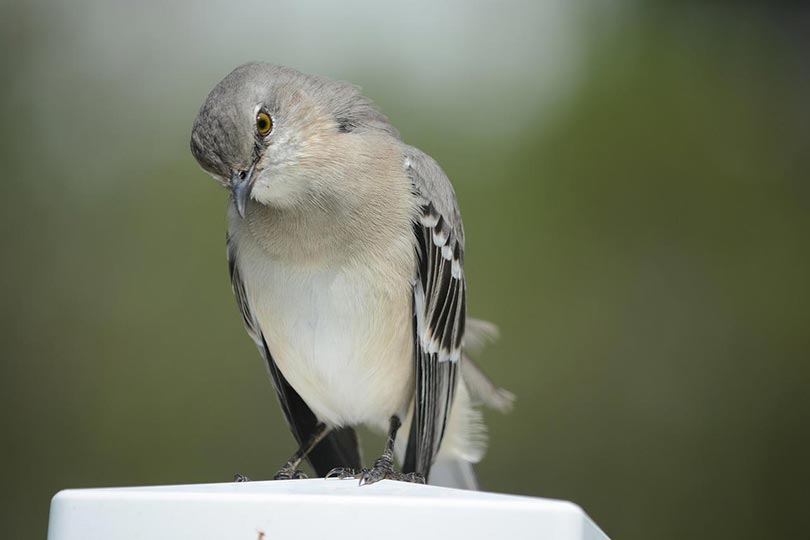What is Arkansas’ State Bird? How Was it Decided?
Last Updated on

Every state in the United States has a state bird. Learning about your state’s bird can be a fun and interesting way to better connect to your state. So, what’s the state bird for The Natural State? How are state birds decided? Here’s what you need to know!

What is Arkansas’ State Bird?
The state bird of Arkansas is the Northern Mockingbird. The Mockingbird is an interesting songbird that is known for its ability to mimic the songs of other birds, although it has a beautiful song all its own as well. In fact, Mockingbirds can mimic up to 200 other bird’s songs, as well as a handful of other sounds. They are not able to mimic human speech, but they can mimic things like squirrels and barking dogs. Mimicry only accounts for around 10% of the songs that Mockingbird’s sing, and unmated males are often the most prevalent singers, singing late into the night in search of a mate.
These birds have a conservation status of least concern and they are thriving in Arkansas, as well as a large portion of North America. Interestingly, the Northern Mockingbird is also the state bird of Florida, Mississippi, South Carolina, Tennessee, and Texas.

How Was The Northern Mockingbird Selected?
The Arkansas’ State Federation of Women’s Clubs was the first to propose the Mockingbird be the state’s official bird, via a campaign headed by Mrs. W.A. Utley. Initially, the proposition was taken as a joke, but the women were able to convince the state governor and legislation of the importance of the Mockingbird to the farmers of Arkansas.
They’ve proven their importance to farmers through eating bugs and the seeds from weeds. They rarely start eating fruits and vegetables until late into the fall when most of the unpicked produce is beginning to rot. Even today, Mockingbirds are greatly appreciated by farmers and gardeners alike. They are also known to divebomb predators, like cats and predatory birds that may get too close to their nests, making them a benefit to have near nesting poultry animals and other small animals, like rabbits.
Thanks to the efforts of the State Federation of Women’s Clubs, the Mockingbird was selected as the Arkansas state bird on March 5, 1929. This decision was made by Governor Harvey Parnell and the Senate members of the 47th General Assembly.
More About the Northern Mockingbird
These beneficial birds can live around 8 years, and they produce in large numbers. A female Mockingbird can lay between 2–6 eggs up to three times per year. They tend to mate monogamously for at least a year, with some Mockingbirds having been seen mating for life. Male Mockingbirds will help their female partner raise the young and protect the nest. They rarely reuse their nests, instead opting to build a new nest every year. Some Mockingbirds will rebuild their nests between egg laying.

Final Thoughts
The Mockingbird is an aptly selected state bird for Arkansas due to the large amount of agriculture and the number of small- and large-scale gardeners and farmers in the state. These birds are a beneficial part of the ecosystem in the state of Arkansas, and their importance overall shines through when you realize that five other states have selected this bird as their state bird as well. They’re fantastic birds that will sing you just about any song you hope to hear due to their ability to mimic the songs of other birds and the sounds of a variety of other animals and items.
Featured Image Credit: Hippo_Lytos, Pixabay
About the Author Brooke Billingsley
Brooke Billingsley spent nine years as a veterinary assistant before becoming a human nurse in 2013, but she still loves all animals! She currently shares a home with three dogs, two cats, five fish, and two snails. She has a soft spot for special needs animals and has a three-legged senior dog and an internet-famous cat with acromegaly and cerebellar hypoplasia. Brooke hosts a podcast focusing on folklore and myth and loves spending her free time researching and writing. Brooke believes that every day is an opportunity for learning and growth and she spends time daily working toward new skills and knowledge.
Related Articles:
10 Types of Hummingbirds in Arkansas (With Pictures)
8 Types of Hummingbirds in Nebraska (With Pictures)
5 Types of Hummingbirds in Idaho (With Pictures)
3 Types of Hummingbirds in Mississippi (With Pictures)
8 Types of Hummingbirds in Kansas (With Pictures)
5 Types of Hummingbirds in West Virginia (With Pictures)
5 Types of Hummingbirds in Ohio (With Pictures)
Where Do Nuthatches Nest? Nuthatch Nesting Habits Explained
